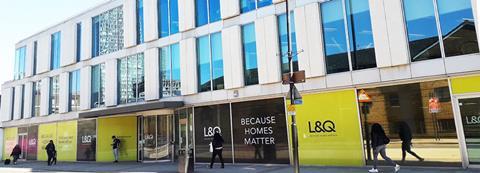RSH proposes charging the largest housing associations hundreds of thousands of pounds more per year as it gears up for expanded role
The English regulator of social housing is consulting on reforms which include nearly doubling regulatory fees for housing associations and charging councils for social homes for the first time.
The Regulator of Social Housing (RSH) is asking for feedback on fee increases to help fund its signficantly expanded consumer role.

The new plans propose to charge social landlords with more than 1,000 properties between £9 and £10 per social home they provide – almost twice the current fee of £5.40 per home.
Housing associations with fewer than 1,000 social homes would still be charged an annual flat fee, but this is set to double from £300 a year to between £600 and £700.
Under the new proposals, the RSH will also charge local authorities owning more than 1,000 homes for the first time. The suggested fee would be between £7 and £8 per home.
Councils with fewer than 1,000 social homes won’t be charged.
The changes also propose to charge organisations when they apply to become registered social landlords, instead of the current approach where landlords pay a £2,500 fee once they have successfully registered. The proposed registration cost would be £3,000.
The largest social housing providers in England could pay hundreds of thousands more in fees per year under the proposals. Housing association giant L& Q, for example, which has 105,000 social homes, could pay more than £1m in fees, compared to its current outlay of £567,000.
The RSH says the proposed hike in fees are designed to recover the full cost of regulation of the sector and its expanded remit.
>>See also: Regulator to start piloting inspections as it gears up for new consumer role
>>See also: Five things you need to know about Angela Rayner and her views on housing
The Social Housing (Regulation) Act was passed into law in July, giving the RSH the power to carry out regular inspections of the largest social housing providers and the power to issue unlimited fines to rogue social landlords.
The Act, which covers reforms proposed more than six years ago in the wake of the Grenfell Tower tragedy, will be effective from April next year.
“Our stronger regulatory remit will empower tenants and help us to hold social landlords to account,” Fiona MacGregor, chief executive of RSH, said in a statement.
“We need to make sure we have the resources to deliver this expanded remit, building on our regulation of landlords’ governance and viability.
“That is why we’re proposing changes to our fee principles, and we encourage landlords, tenants and others in the sector to respond to this consultation.”
The consultation period is open from today until 6:30pm on 31 October.
Subject to this consultation and approval by the housing secretary Michael Gove, the revised fees will apply from 1 July 2024.
RSH is gearing up to inspect every large social landlord, including local authorities on a rolling four-year basis.
The new legislation beefs up the consumer role for the RSH, adding objectives of safety, transparency and energy efficiency to its formal objectives.
Currently, the RSH can usually only intervene on a consumer issue where a ‘serious detriment’ test is passed – placing a high threshold on the regulator’s ability to use its powers. The bill removes this test, meaning RSH can intervene in more tenant complaint cases.
It gives RSH the power to set performance improvement plans backed up with penalties for landlords who do not deliver. The RSH will also have the power to issue unlimited fines, order emergency repairs and access homes at 48 hours’ notice.
The legislation also makes it a legal requirement for around 25,000 social housing managers to hold qualifications.











No comments yet